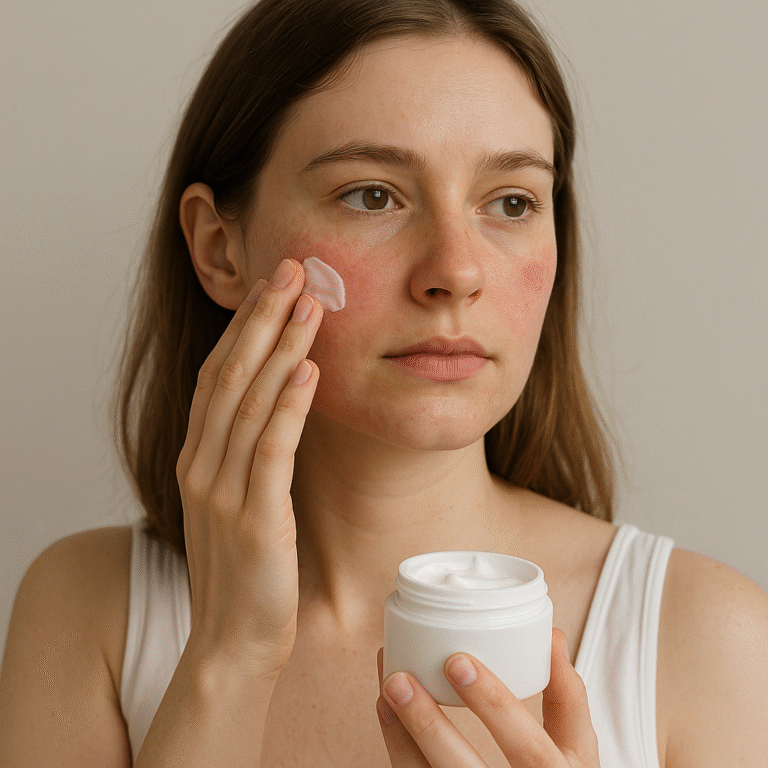The Best Ingredients for Glowing Skin: What to Look for in Your Products
Radiant, glowing skin is often seen as the ultimate sign of health and vitality. While hydration and sleep are essential, the right ingredients in your skincare routine can make a dramatic difference in how luminous your complexion appears.
Let’s break down the most effective ingredients that dermatologists and skincare experts recommend to help your skin glow from within.
1. Vitamin C: The Brightening Powerhouse
Vitamin C is one of the most researched and effective brightening agents in skincare.
Benefits:
- Evens out skin tone
- Reduces hyperpigmentation
- Stimulates collagen production
- Protects against environmental damage
Best for: All skin types, especially dull or uneven skin.
How to use it:
Apply a vitamin C serum in the morning before sunscreen. Look for formulas with ascorbic acid between 10% and 20%.
2. Niacinamide: For Smooth, Even Skin
Niacinamide (vitamin B3) has gained popularity for its versatility and ability to improve skin texture without irritation.
Benefits:
- Minimizes pores
- Reduces redness
- Brightens dull skin
- Strengthens the skin barrier
Best for: All skin types, especially sensitive and combination skin.
How to use it:
Use a niacinamide serum or moisturizer daily, morning or night. Pairs well with other actives like hyaluronic acid and retinol.
3. Hyaluronic Acid: The Hydration Magnet
Hydration is key to glowing skin. Hyaluronic acid draws moisture into the skin and makes it look plump, dewy, and healthy.
Benefits:
- Hydrates deeply
- Improves skin elasticity
- Softens fine lines
Best for: Dry, dehydrated, or mature skin.
How to use it:
Apply on damp skin before sealing with a moisturizer. Look for multi-weight hyaluronic acid for better absorption.
4. Alpha Hydroxy Acids (AHAs): Gentle Exfoliation for Glow
AHAs like glycolic and lactic acids remove dead skin cells and help reveal fresher, brighter skin underneath.
Benefits:
- Improves cell turnover
- Brightens dull skin
- Fades dark spots and fine lines
Best for: Normal, dry, or sun-damaged skin.
How to use it:
Use an AHA toner or serum 2–3 times per week at night. Follow with SPF the next morning, as AHAs increase sun sensitivity.
5. Retinol: The Long-Term Radiance Booster
While retinol is best known for its anti-aging benefits, it also improves skin texture and radiance over time.
Benefits:
- Speeds up cell turnover
- Reduces dark spots and acne
- Smooths fine lines
Best for: Aging, acne-prone, or uneven skin.
How to use it:
Start slowly (1–2 times per week) and increase frequency as tolerated. Always pair with moisturizer and SPF.
6. Licorice Root Extract: Nature’s Brightener
This gentle botanical extract helps fade discoloration and is ideal for sensitive skin types.
Benefits:
- Reduces dark spots
- Calms redness
- Evens skin tone
Best for: Sensitive, irritated, or inflamed skin.
How to use it:
Look for it in serums or spot treatments, especially in products for melasma or post-acne marks.
7. Squalane: Lightweight Glow for All Skin Types
Squalane mimics your skin’s natural oils and provides non-greasy hydration that leaves a luminous finish.
Benefits:
- Moisturizes and softens skin
- Boosts glow
- Reduces inflammation
Best for: All skin types, including oily and acne-prone.
How to use it:
Use a few drops as the final step in your skincare routine or mix with your moisturizer.
8. Peptides: Skin-Firming Radiance
Peptides support your skin’s structure and improve overall firmness and luminosity.
Benefits:
- Promotes collagen production
- Improves skin texture
- Increases skin elasticity
Best for: Mature or dull skin.
How to use it:
Look for peptide serums or creams, especially in your nighttime routine.
Building a Glow-Boosting Routine
- Cleanse with a gentle, hydrating cleanser.
- Exfoliate 2–3x/week with AHAs or an enzyme mask.
- Apply serum with vitamin C, niacinamide, or peptides.
- Hydrate with hyaluronic acid.
- Seal in moisture with squalane or a glow-boosting moisturizer.
- Always use sunscreen in the morning!
What to Avoid If You Want Glowing Skin
- Over-exfoliating — it can damage your barrier
- Skipping sunscreen — UV damage dulls skin
- Dehydration — drink water consistently
- Heavy makeup every day — can clog pores and cause buildup
Internal Links
- Top Ingredients to Avoid for Sensitive Skin
- Hydration vs. Moisturization: What Your Skin Really Needs
- Best Facial Oils for Glowing Skin
- Serum vs. Moisturizer: What’s the Difference?

